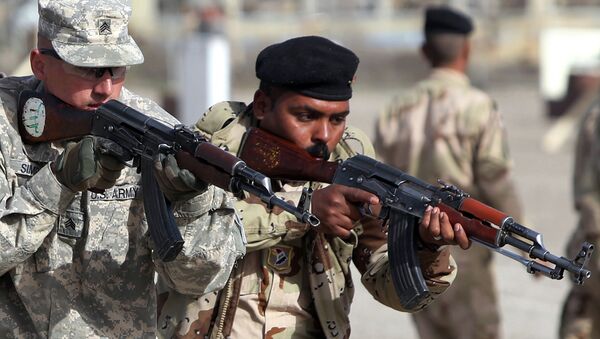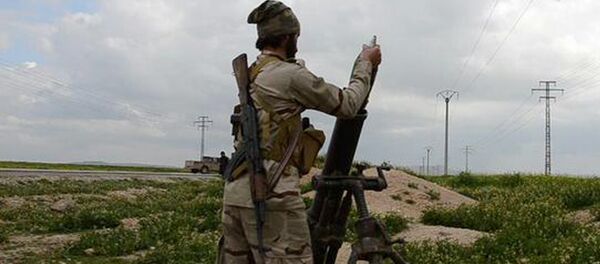While pursuing its geopolitical interests in the Middle East Washington has seemingly lost touch with reality, a US analyst on national security and foreign policy, retired Lt. Col. Daniel L. Davis notes, adding that this very problem lies at the root of the US military campaign's failure in Syria.
"For far too many years now, American foreign policy has largely been made according to our preferences, independent of the realities governing given situations. The results are as predictable as they are painful: we are frequently the author of ineffective policies that not only don't succeed, but harm our own interests. If we don't want to see the situation in the Middle East deteriorate even further, major changes are required," Davis stressed in his article for the National Interest.
"I have directed a comprehensive and sustained strategy to degrade and defeat ISIL. As part of this strategy, US military forces are conducting a systematic campaign of airstrikes against ISIL in Iraq and Syria," Obama announced as quoted by Davis.
Remarkably, the US president has not clarified what exactly those airstrikes were intended to accomplish, the analyst stressed.
"Did he believe the extremist group could be eventually defeated if enough of their fighters were killed in these strikes?… Did he feel that attacking targets in Iraq alone wouldn't accomplish his objective, but by expanding to Syria it would?" the retired lieutenant colonel asks.
Whatever answer is given to this question, the result of Washington's anti-ISIL military operation is obvious.
Lt. Col. Davis states it clearly: "It has proven to be a spectacular failure."
In contrast, Russia's airstrikes have proven far more effective and Moscow, along with Tehran, is currently gaining ground in Syria.
In light of this Davis poses the question: "Why continue to expend national resources and risk American lives on a military mission that cannot succeed?"
According to the analyst Obama's decision to use small numbers of Special Forces troops and combat advisors in Iraq, as well as to continue US airstrikes, will hardly improve the situation. The proposed strategy is "flatly incapable" of achieving Obama's main task — "defeating ISIL."
"Even in this late hour, the US should show robust leadership by first seeking to contain the fighting where it is and stop it from spreading. We would accomplish this objective by employing the full weight of American diplomatic and political influence to geographically isolate the Islamic State, squeezing them economically and doing all we can to provide humanitarian aid to the civilians suffering under ISIL domination," he suggested.
"The thousands of airstrikes we've thus far conducted have destroyed civilian infrastructure and killed innocent people as much as legitimate insurgent fighters and thus has caused more harm than any good it might ever have done," he remarked.
Washington is capable of isolating ISIL and shutting down the flow of foreign money to the extremist group.
"This strategy is emotionally unsatisfying. It isn't sexy. And it isn't fast. But were we to employ such a strategy, it would have a realistic chance of achieving national objectives," Davis stressed.
The tactics Washington is currently using are flawed and have no chance at all of succeeding, the analyst warns.
"I fear I know what course of action current American civilian and military leaders will choose," he concluded.




